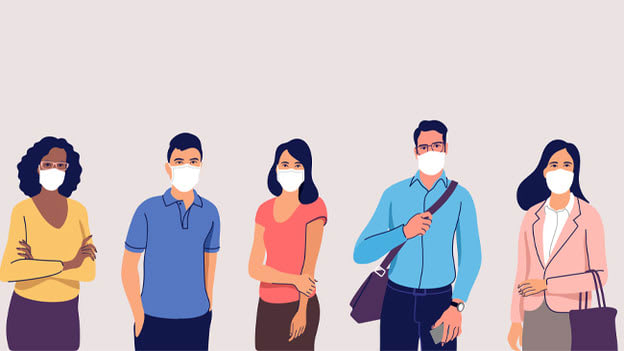How COVID-19 is shaping the future of work

Organizations across the world have had to embrace radical change as the COVID-19 crisis has had far-reaching consequences on the workplace and workforce of the future. One of the notable trends has been the acceleration of digital transformation and innovation, with video conferencing tools and virtual communities continuing to engender a sense of connectedness, in a time when we are encountering widespread social isolation and pandemic stress. The pandemic has highlighted the need for health and safety, human connection as well as mental and physical wellness as paramount conditions for a business to survive and thrive. While new COVID-19 cases and deaths have dropped sharply globally, and closer home, the curve seems to be flattening, it is apparent that the virus is here to stay. This is a clear indication for businesses to chalk out comprehensive plans for workplace strategy, talent management, organizational culture, and employee welfare, as hybrid and flexible models define the future of work.
Employee health, both physical and mental well-being, has taken center stage today. Providing employees with the tools, resources, financial aid, and flexibility for health and safety and self-care has become a priority for corporations—from blue-chip organizations to startups. From offering financial aid to families of employees impacted by COVID-19, to bearing costs for hospitalization, insurance, funeral, and vaccination expenses, many corporations have stepped up their employee welfare game. Many have even gone above and beyond in assisting individual employees in procuring food, groceries, oxygen concentrators, and supporting the families of COVID-19 deceased with employment opportunities for next of kin.
Employee Assistance Programs (EAP), enable employees to have access to a range of confidential and professional counseling services during these distressing times. Apart from this, a few companies have introduced wellness leave to encourage people to take a mental health break or to cater to sickness or period leave. In a prolonged work from home scenario, many organizations have announced “Zoom-free” days or “wellness days” to help employees get a break from Zoom fatigue and to make space for people to pause, reflect and focus. As travel begins to gradually resume, WeWork India offers a “workation” policy of up to ten days annually that allows people to travel and spend time with loved ones or just explore new places, while they work remotely.
Post-COVID employee experience
A sense of community and collaboration lies at the heart of employee experience and the focus of human resources teams will shift towards uplifting the overall “life” experience for employees, and not just their experience at work. Driving company and function level communication to ensure employees are connected to the company mission will be a focus area for CEOs, as remote employees will miss the human connection that forms an integral part of the culture. Hosting employee-led virtual events and extending these events to families have become part of the employee engagement strategy. Many organizations have organized expert sessions on health and wellness, mindfulness, stress and anxiety management, and pandemic-related education. CXO leaders will aim to connect with employees from across markets, check in, and provide empathy and support. There are also numerous examples of employees who have stepped up and gone the extra mile to contribute to the community in these trying times. Brands will showcase these employee stories of everyday greatness to offer hope, inspiration, and optimism to the community. Employee Resource Groups (ERGs) will focus on creating awareness and organizing initiatives to highlight the power of inclusion in a “remote” world, share mutual experiences, and provide the right tools and channels for every individual to “belong”. WeWork India launched “Level Up” and a “Further Education Program” to help employees meet aspirations for learning and development and higher studies, with 16 scholarships offered in 2021. The pandemic has proved again that company culture is indeed an organization’s immune system and acts as the glue that binds a virtual and dispersed workforce together when there is uncertainty and unpredictability in the environment around us.
The experiences of the last year have also served as a reminder for companies to stand together in solidarity during a crisis, staying united in the fight against the virus. “Community over commerce” has been the overarching philosophy for many organizations and this is reflected in people and performance management policies. Companies have partnered with several organizations for humanitarian COVID-19 aid and we will continue to see large corporations pave the path in these efforts for many months to come. Companies will continue to offer their workforce the flexibility to operate out of workspaces closest to their homes, making “work near home” another trend. We will start seeing innovative workplace design strategies that factor in staff rotations, hybrid work models, health and safety protocol as well as wellness priorities.
The post-pandemic future of work hinges on our response to the pandemic. It calls for thinking on frameworks to prepare for and manage crises such as the pandemic. COVID 19’s long-term influence is expected to drive digital innovation to new highs, expand cloud-based collaboration and AI-driven software. But most importantly, it holds the promise to make company culture and wellness a strategic people priority, improve workplace policies that support the diversity of talent, and transform the quality of lives.
















